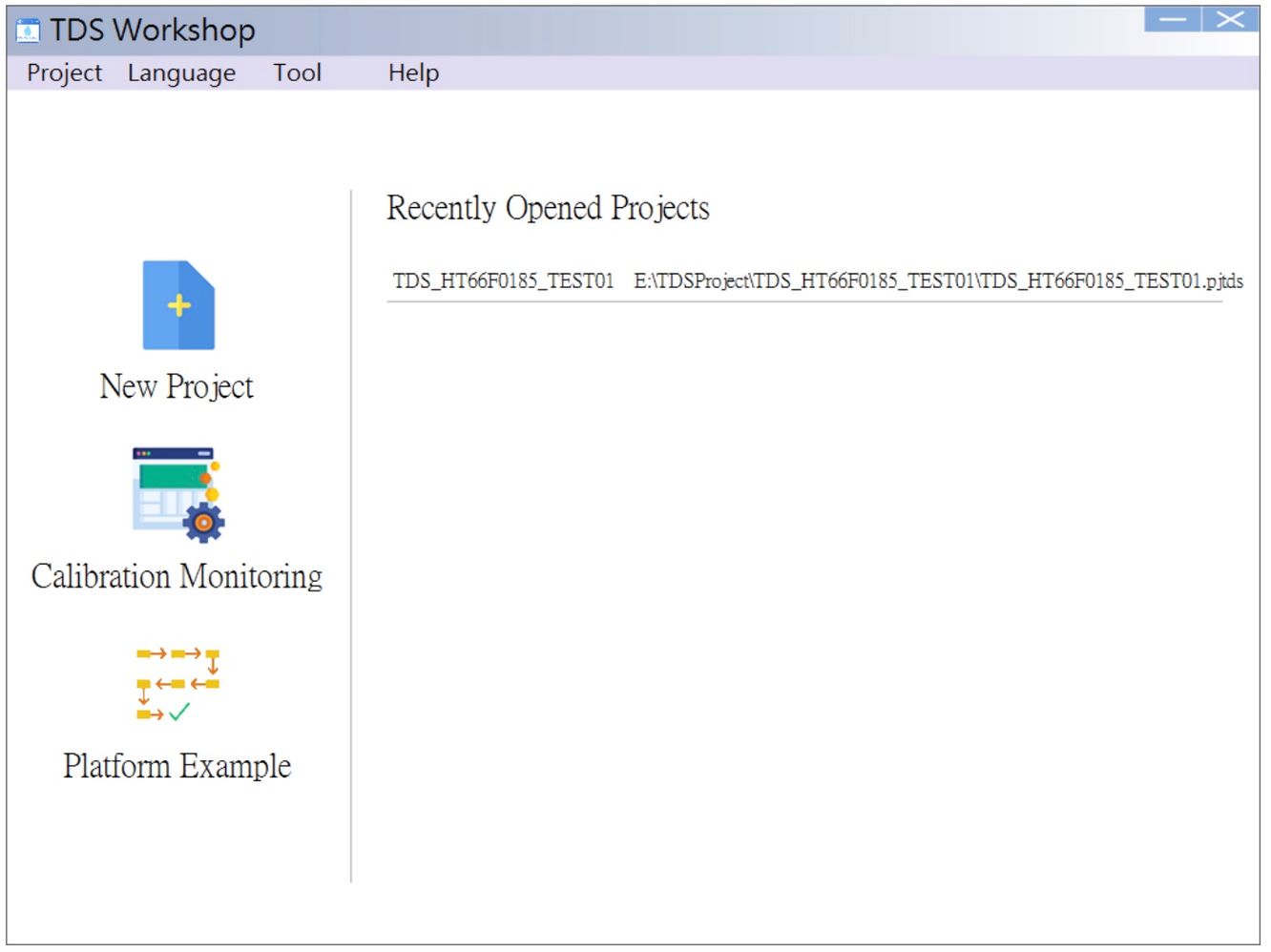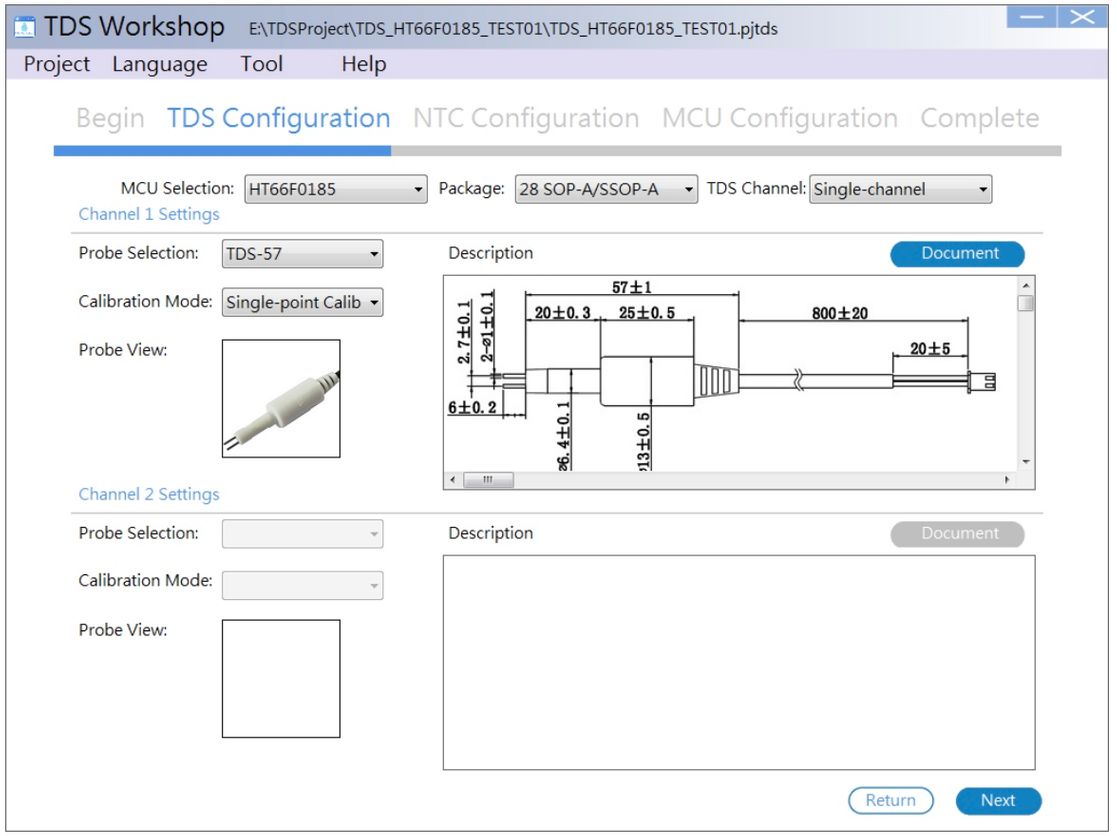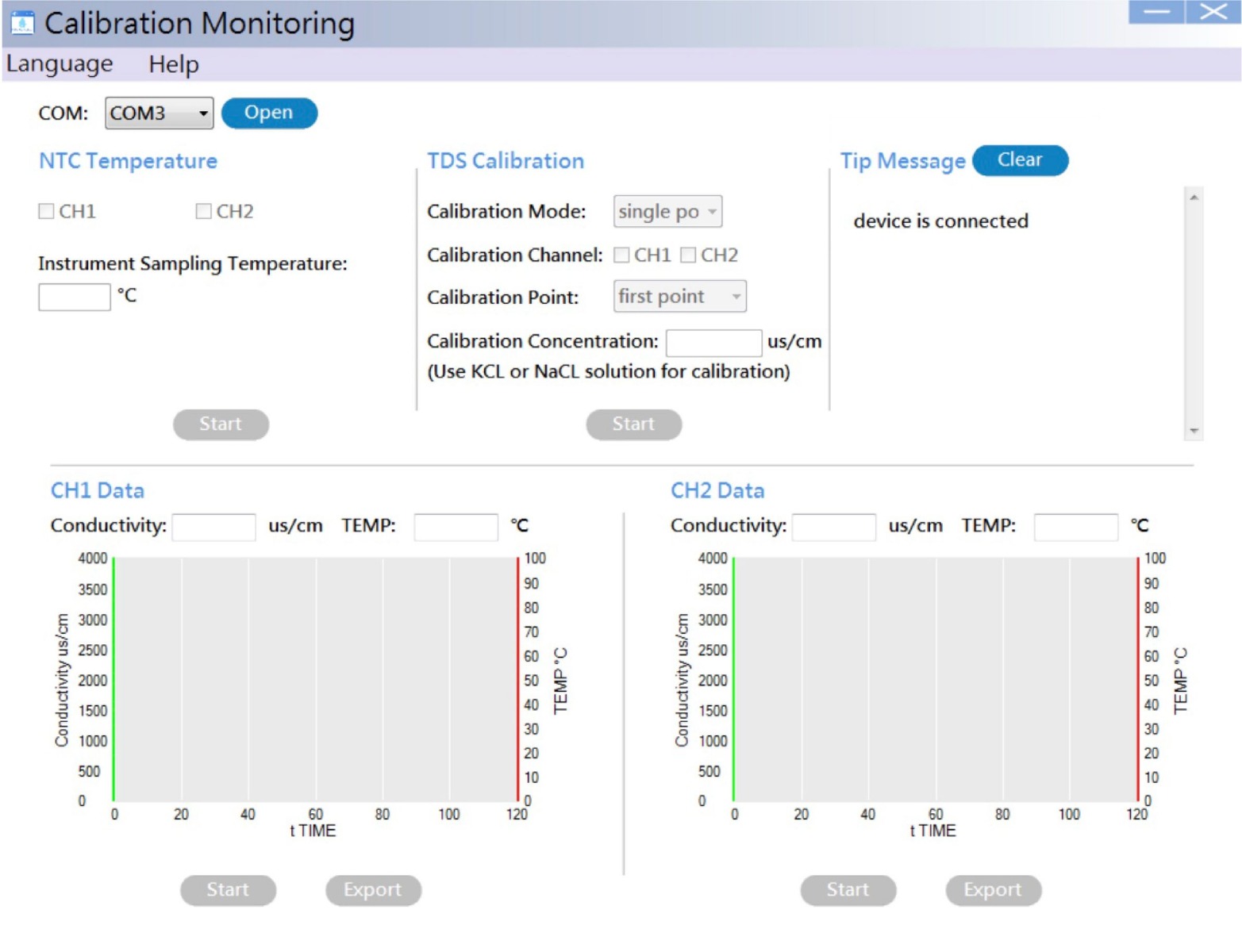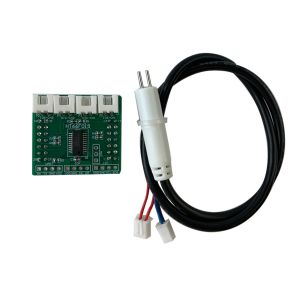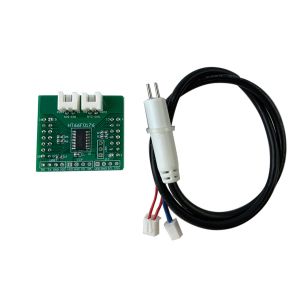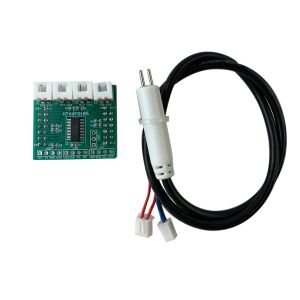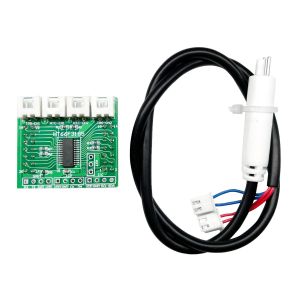TDS (Total Dissolved Solids) is a measure of the combined total of organic and inorganic substances contained in water. It can be a general indicator of water quality. The unit of TDS measurement is ppm or milligrams per liter (mg/L). The larger the TDS value, the more dissolved substances in water.
In many consumer products, the TDS value is calculated by measuring the conductivity of water (in uS/cm), which is roughly 1 ppm TDS = 2uS/cm. Using parallel cylindrical electrodes with fixed distance as the measuring probe, the probe is placed in water and a voltage is applied between the two electrodes to measure the conductivity.
Factors affecting the accuracy of TDS measurement include water temperature, flow rate, etc. In general, the standard measurement temperature is 25°C. For each 1°C increment, the TDS value increases by about 2%. When measuring TDS, the water temperature is usually measured together for temperature compensation.
The Holtek TDS Workshop integrates the rich functions of TDS measurement, temperature measurement, button input, display, communication etc. You can complete the configurations and generate MCU codes in several steps. The TDS platform also has a calibration monitoring window to calibrate the device and monitor the measured TDS value continuously. The measurement records can be exported to an excel file.
Holtek provides six modules and the development board, ESK-TDS-100, that can work with the TDS platform. Each module includes a TDS sensor probe (TDS-37).
The product can connect to any other TDS modules, and it contains a USB interface as the power input and for communication with the platform. It also includes a USB-to-UART bridge circuit and a USB-to-IIC bridge circuit for platform communication, three buttons, an LCD (default: 3COM×9SEG), two LED alarm indicators, and a module interface where a TDS module can be connected, and an ICP (in-circuit programming) interface.
Product information
Dimension: 102 x 56 x 12 mm
Net weight: 33g (PCB)


